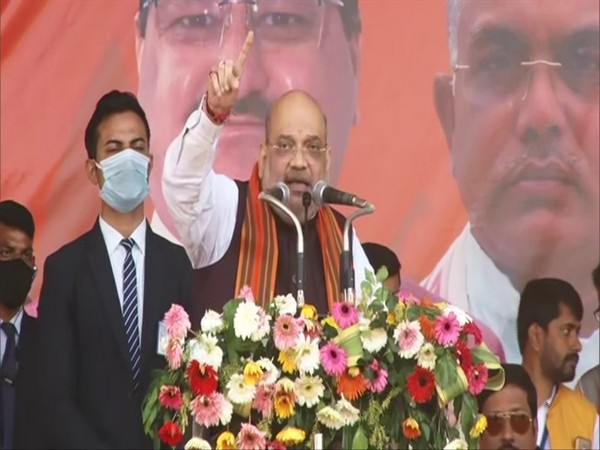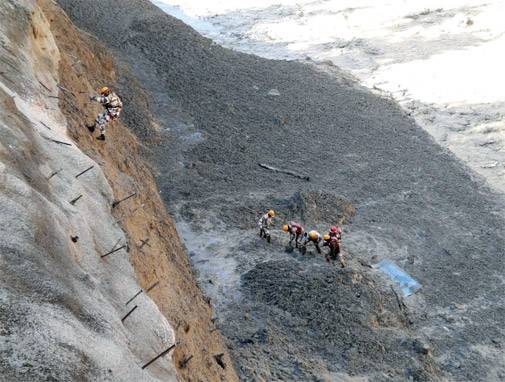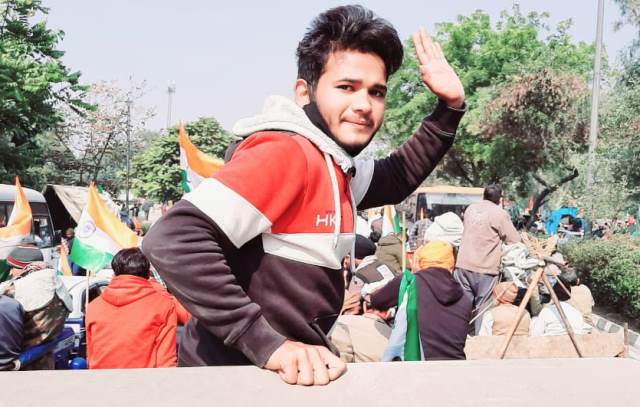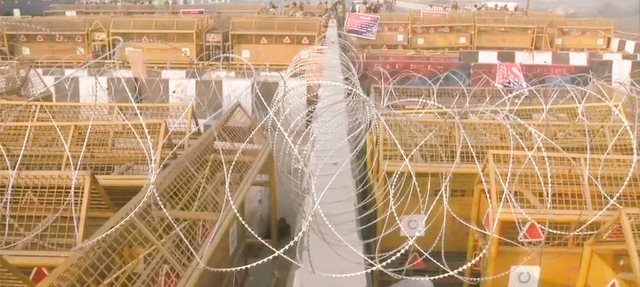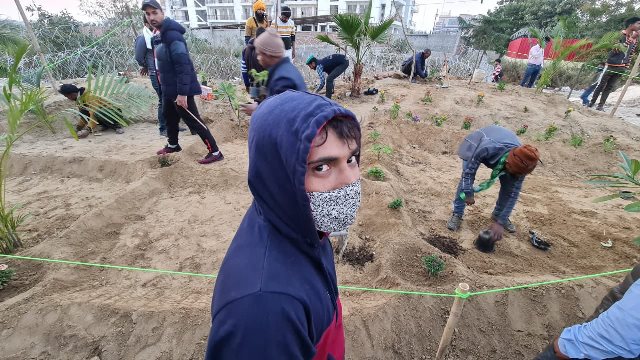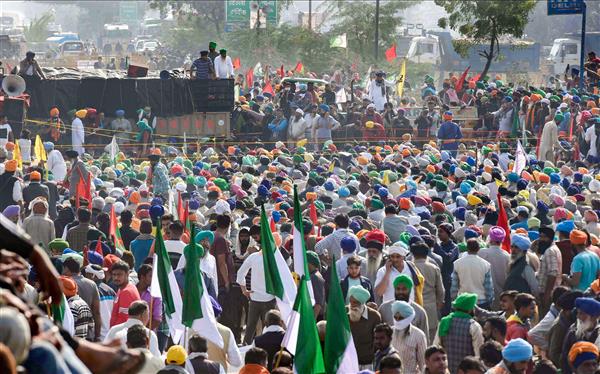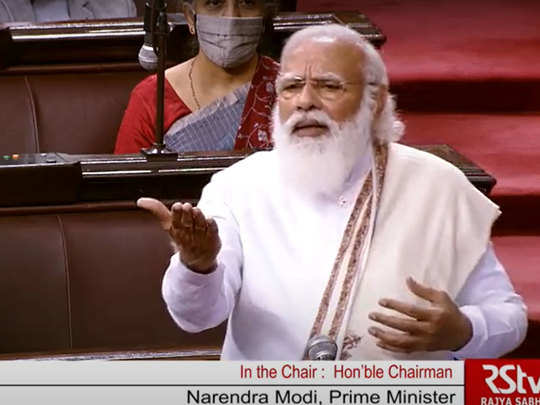Smarting at China for long over several issues – border tensions that have compelled, among other things, minimizing of economic ties, boosting of “all-weather friend” Pakistan, being opposed at diplomatic forums and being surrounded in the region south of the Himalayas – India has found a sure and significant counter in the shape of vaccine against Coronavirus.
Even if small and short-term, it is smart, and has the world taking note – a world that is suffering from the pandemic. The Narendra Modi Government deserves full marks for launching “vaccine diplomacy” when confronted by a myriad issues. That includes being among the top five nations among the Corona-hit.
Its aspirations to become vishwa guru – teacher to the world – may seem tall and are contentious, even at home. But this one, emerging as vishwa chikitsak – doctor to the world, at least a good part of it, and partly, is eminently achievable and is already underway.
Beginning January 16, countries far and near are benefitting on something they direly need. That brings goodwill – hopefully, also blessings from individuals and families those who get cured. A vaccine is tika or teeka. It also carries several other connotations. The one that fits in here is tilak, the mark on Indian forehead to depict success, with humility. And why not, when India has already been the wold’s largest vaccine-maker?
Five million doses of Oxford University-invented Astra Zeneca vaccine, produced by Serum Institute of India (SII) are being gifted to Bangladesh, Nepal, Bhutan, Maldives, Myanmar, Afghanistan, Sri Lanka, Mauritius, Cambodia and Seychelles. Each of them is in dire need of the vaccine due to high incidence, and each one is hit economically by the pandemic. Inoculation began within three days of the vaccine being flown by special flights.
This has been India’s traditional area of regional influence where China, with its deep pockets and offers of huge projects has grabbed in the recent years.
Predictably, given perennially adversarial relations, India has ignored Pakistan that has yet to get a firm Chinese commitment of Sinovac. It is in queue for free doses while awaiting Astra Zeneca and Russia’s Sputnik for “emergency use.”
India has raced ahead when China has yet to begin because of the uncertainties attached to its vaccine trials. Indeed, there is also the psychological factor about China being accused – real or propaganda – of causing Covid-19 at Wuhan and as it spread, not informing the world.
This is India’s defining moment. Besides goodwill and prestige, it is good business also, coming when its economy is struggling to recover from the lows experienced long before Covid-19 struck last year. Seven Indian companies are racing to produce vaccines and Covaxin of the state sector Bharat Biotech is already being administered.
Thanks to the virus, the Indian pharmaceutical sector, slated to export worth USD 25 billion by end-March, can expect to export much more.
To some of the neighbours, including Bangladesh that is to get three million doses for free as a goodwill gesture, commercial exports are scheduled to let the SII recover its investment and effort.
India has contracted to sell SII-made Covishield to Brazil, Morocco, South Africa, and Saudi Arabia. Flights carrying the precious cargo took off to these countries on January 22. Order books are full to conduct exports to more nations.
India plans to export vaccines to the other poor and middle-income countries of Africa, Latin America and Southeast Asia as part of an arrangement with GAVI, the vaccine alliance. This should boost its and soft-power on even a larger scale than yoga.
It has not been easy, however. A major pharma producer, despite its growing strength, India has faced an undercurrent of propaganda in the global market about the reliability of its medicines after the US Food and Drugs regulator sent out adverse notices.
Emerging as the pharmaceutical powerhouse of the region has increased the reliability of India’s healthcare sector on which its neighbours are heavily dependent. This could further bolster medical tourism.
The least-talked part of this vaccine story is the role of the tiny Parsi community of fire-worshipping Zoroastrians, to which SII’s owner, Cyrus Poonawala and his CEO son Adar belong.
A story on social media that remains unconfirmed is that of Cyrus offering the Bombay Parsi Panchayat to reserve over 60,000 doses of Covishield for the community. Ratan Tata, head of the house of Tata, politely declined: “we are Indian first, then Parsis. We will wait our turn in line.”
This is the modesty for which the Parsis are well-known. But there is no escaping some details, even allowing for an element of exaggeration.
+ SII’s Covishield is stored in glass vials produced by a Parsi firm Schott Kaisha, owned by Rishad Dadachanji.
+ They are transported with dry ice manufactured by another Parsi, Farokh Dadabhoy.
+ They are delivered by Tata Motors Trucks.
+ Vaccine batches transported by GoAir of Jeh Wadia and stored in refrigerators made by Godrej, both renowned Parsi family enterprises.
Despite being a miniscule fraction of the 1.3 billion Indian population, the Parsis have never asked for Minority benefits. They have always punched above their class and the numbers.
Literate, industrious and not averse to leaving shores unlike the traditional Hindus, they became indispensable to Britain’s global reach. One of their tasks was carrying opium to China. But they also fought the British: Dadabhai Naoroji, Dinshaw Mehta, Bhicaiji Cama were among them.
They responded to overtures from the Mughal kings and later to the early British settlers, taking up shipping, banking, construction and brokerage. They were the pioneers who built a half of Mumbai.
It would take several pages to list only the names of Parsis who have made an outstanding contribution to independent India’s economy, defence, atomic energy, music, literature, science, sports and cinema. Their reach is now global.
Way back in 2012, a top community official told the Mumbai High Court that its definition of a poor Parsi was one who earned less than Rs 90,000 per month. This is many times more than India’s per capita annual income of $1,876.53 or Rupees 136,794.
Is the community India’s richest? It does have poor members. But then think of India’s Tata, Godrej, Pallonji, Wadia, Avari and Bhandara of Pakistan, Lord Karan Bilimoria of Britain – to name only the industrialists and businessmen.
Almost all of them have institutionalised philanthropy giving billions away. Although all faiths preach piety and charity, the Parsis (“thy name is charity”) lead. It is riches well earned, well spent. It will be tragic if their population dwindles to almost zero by the end of this century.
The writer can be reached at mahendraved07@gmail.com

